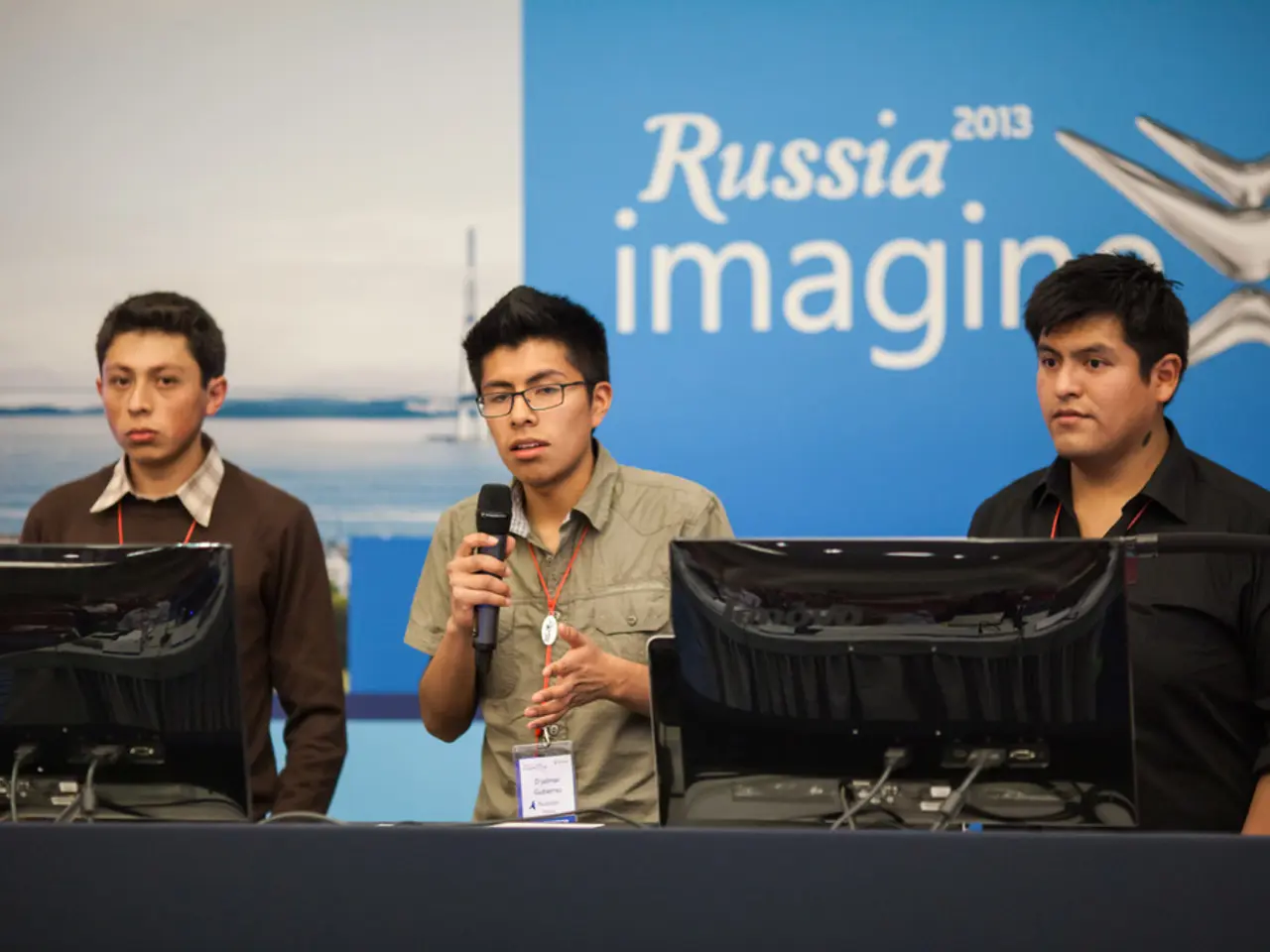Increased Imports of Liquefied Natural Gas (LNG) from Russia by EU Countries
The European Union (EU) has announced plans to phase out Russian gas imports, with a complete ban set for January 1, 2028. This move is part of a broader strategy to reduce reliance on Russia, though it still requires approval from the European Parliament and member states.
According to recent reports, the EU imported approximately 4.48 billion euros worth of liquefied natural gas (LNG) from Russia in the first half of 2025, marking a 29% increase from the same period the previous year. The ban, if approved, will affect not only pipeline gas but also LNG imports.
One of the companies potentially impacted by this ban is Sefe, a German state-owned energy company that continues to import LNG from Russia under an existing long-term contract. The future of Sefe's operations with the proposed import ban is unclear, as a final assessment is only possible once the regulation is finalized.
The EU's proposal includes a ban on new contracts from January 1, 2026, and ending deliveries under existing short-term contracts by June 17, 2026. However, the article does not provide new information about the timeline for these bans.
The ban could accelerate, with the European Parliament exploring proposals to complete the phase-out by January 2027 instead of 2028. The EU has been increasing LNG imports from other suppliers such as the US and Qatar to compensate for reduced Russian gas, but challenges remain due to human rights and environmental conditions imposed on suppliers.
For German companies relying on Russian gas, the ban will require them to seek alternative energy sources or suppliers. The need to adapt operations to a market with restricted Russian gas is likely to increase costs or require investments in alternative energy infrastructure.
Moreover, potential compliance with EU regulations affecting supply chains could influence companies with subsidiaries or business related to Russian energy. Market adaptation pressures as natural gas futures fluctuate with changing supply dynamics are also expected.
In 2024, the US was the largest LNG supplier to the EU, accounting for nearly 45% of total imports. Gas supplies from Russia accounted for nearly 19% of all EU imports in 2024. The majority of LNG imported in the first six months of 2025, around 13.7 billion euros, came from the US.
The EU Commission now wants to completely ban the import of Russian gas into the EU by 2028. The ban proposed by the EU Commission should apply to long-term supply contracts from January 1, 2028. The Commission's proposal also includes a safety clause that allows affected EU countries to suspend the import bans for gas if the supply security of one or more member states is seriously endangered.
In total, around 26.9 billion euros worth of LNG was imported in the first six months of 2025. The source of the information is ntv.de, als/dpa.
This news underscores the need for German companies, including Sefe, to prepare for operational and strategic shifts to handle supply and regulatory changes. The EU's phasing out of Russian gas imports is a significant step towards energy independence and reducing reliance on a single supplier, but the process will require careful navigation and adaptation by companies within the EU.
The phasing out of Russian gas imports by the EU, as proposed by the EU Commission, necessitates a careful reassessment of employment policies within companies like Sefe, given their reliance on Russian gas. This process could result in shifts in the industry, possibly leading to an increase in employment related to alternative energy sources or suppliers.
The EU's strategy to shift away from Russian gas and towards other suppliers, such as the US and Qatar, also necessitates a review of community policies, particularly those concerning finance and energy, to accommodate these changes and address potential challenges arising from human rights and environmental conditions imposed on suppliers.




